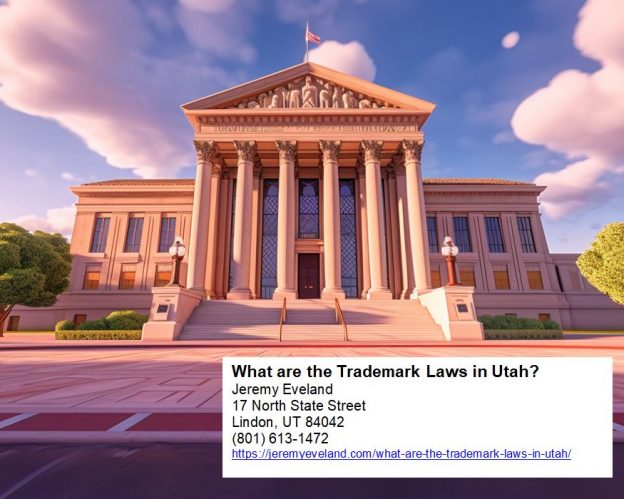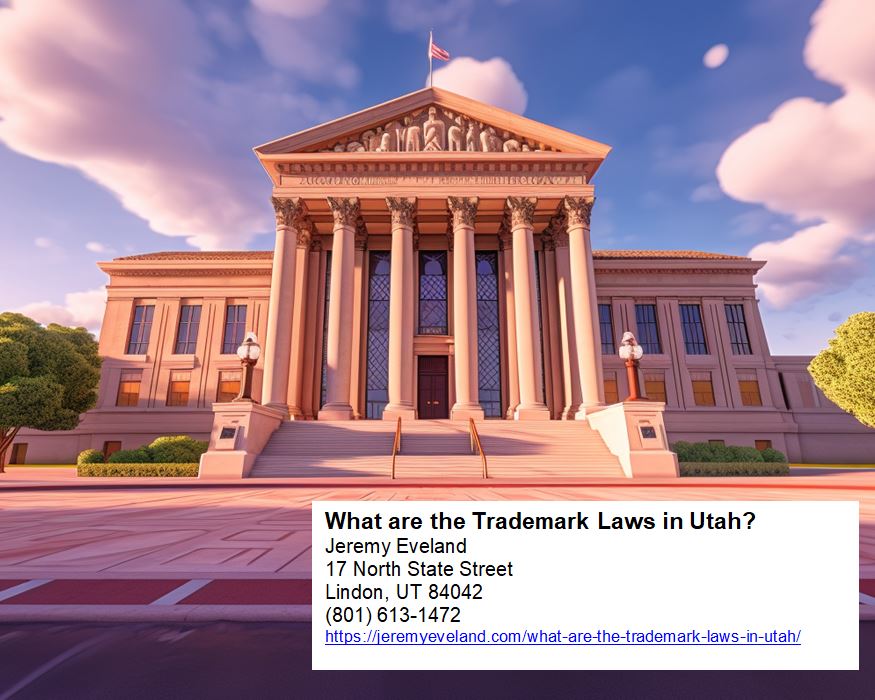In today’s highly competitive job market, ensuring the accuracy of your resume and job application is of utmost importance. Your resume serves as a marketing tool, showcasing your skills, qualifications, and experience to potential employers. However, a poorly written or inaccurate resume can significantly hinder your chances of securing the desired position. Employers rely on accurate information provided in resumes and job applications to assess candidates’ suitability for a job. Therefore, it is crucial to pay careful attention to detail and ensure that your resume and application accurately reflect your capabilities and accomplishments. In this article, we will explore the significance of resume and application accuracy and provide valuable tips to help you present yourself effectively to potential employers.

The Importance of Resume and Application Accuracy
In the competitive job market, resume and application accuracy is crucial. Your resume and job application are often the first impression you make on potential employers, and any inaccuracies or mistakes can harm your chances of being considered for a position. Accuracy is not only important for your own credibility and professionalism, but it also shows employers that you pay attention to detail and take pride in your work. This article will explore why accuracy matters, how inaccurate information can harm you, and why employers value accuracy in resumes and applications.
Why Accuracy Matters
Accuracy in your resume and job application is essential for several reasons. Firstly, it ensures that the information you provide is truthful and reliable. Employers rely on the accuracy of resumes and applications to make informed decisions about which candidates to interview and hire. Secondly, accuracy demonstrates your attention to detail and commitment to excellence. Employers appreciate candidates who take the time to thoroughly review and double-check their documents, as it reflects their professionalism and commitment to producing quality work. Lastly, accuracy in your resume and application establishes a solid foundation for building trust with potential employers. When your information is accurate, employers can trust that you will provide them with genuine and reliable information throughout the hiring process.
How Inaccurate Information Can Harm You
Inaccuracies in your resume and job application can have significant negative consequences. Firstly, providing false or misleading information can lead to immediate disqualification from consideration for a position. Employers have a responsibility to verify the accuracy of the information provided by candidates, and any discrepancies or falsehoods can result in the immediate dismissal of your application. Additionally, inaccuracies can damage your professional reputation and credibility. If an employer discovers that you have lied or exaggerated your qualifications, it can have long-term implications for your career prospects. Trust is essential in professional relationships, and inaccuracies in your resume and application can erode that trust between you and potential employers.
Why Employers Value Accuracy in Resumes and Applications
Employers place a high value on accuracy in resumes and applications for several reasons. Firstly, accurate information allows employers to assess your qualifications and suitability for a position more effectively. Employers rely on the information in your resume and application to determine if you possess the necessary skills, experience, and education required for the role. Secondly, accuracy demonstrates your ability to communicate effectively and to meet professional standards. Employers look for candidates who pay attention to detail and present themselves accurately and professionally. Lastly, accuracy in your resume and application reflects your level of honesty and integrity. Employers value candidates who are truthful and transparent in their application materials, as it establishes a foundation of trust that is essential in the employment relationship.

Common Resume and Application Mistakes
In the competitive job market, even small mistakes or oversights in your resume and application can have a significant impact on your chances of success. It’s important to be aware of and avoid common errors that employers frequently encounter. The following are some common resume and application mistakes to watch out for:
Grammatical and Spelling Errors
Grammatical and spelling errors can create a negative impression and suggest a lack of attention to detail. It’s essential to carefully proofread your resume and application to ensure that there are no mistakes in grammar, punctuation, or spelling. Consider using online grammar and spell-check tools to assist in catching any errors that may have been overlooked.
Incomplete or Inaccurate Contact Information
One of the most critical components of your resume and application is your contact information. It’s essential to ensure that your contact information is complete and accurate. Double-check that your phone number, email address, and physical address are up to date and correct. Failure to provide accurate contact information can result in missed opportunities or confusion for potential employers.
Exaggerations and False Claims
While it may be tempting to exaggerate your experiences or skills to stand out, it’s crucial to maintain honesty and integrity in your resume and application. Exaggerations and false claims can easily be discovered by employers during the screening and verification process, leading to immediate disqualification. It’s best to present your qualifications and experiences accurately and focus on highlighting your genuine strengths and achievements.
Unprofessional Email Addresses and Social Media Profiles
Your email address and social media profiles can have a significant impact on the impression you make on potential employers. It’s important to ensure that your email address is professional and appropriate for professional communication. Additionally, review and clean up your social media profiles to ensure that they present you in a positive and professional light. Employers often conduct online research on candidates, and unprofessional online presence can harm your chances of getting hired.
Ways to Ensure Accuracy in Resumes and Applications
To ensure the accuracy of your resume and application, it’s essential to take proactive steps to review and verify the information you provide. The following are some strategies to help you ensure accuracy:
Thoroughly Reviewing and Editing Your Documents
Take the time to thoroughly review and edit your resume and application. Carefully read through each section to identify and correct any errors or inconsistencies. Consider asking a trusted friend or colleague to review your documents as well, as a fresh set of eyes can often catch errors that you may have missed.
Using Spell Check and Grammar Tools
Utilize spell check and grammar tools to help identify and correct any errors in your resume and application. While these tools are not infallible, they can be helpful in catching basic mistakes. However, it is crucial to also manually review your documents, as these tools may not identify all errors, especially contextual ones.
Double-Checking Contact Information
Before submitting your resume and application, double-check that your contact information is accurate and up to date. Ensure that your phone number, email address, and physical address are correct. Mistakes in contact information can lead to missed opportunities or difficulties in reaching you for potential interviews.
Verifying Dates, Titles, and Responsibilities
Ensure that the dates, job titles, and responsibilities listed in your resume and application are accurate. It’s important to verify these details with your previous employers or references to ensure that you are providing accurate and reliable information. Inaccuracies in these areas can be easily identified by employers during the verification process.
Seeking Feedback from Others
Consider seeking feedback from others, such as career counselors or mentors, on your resume and application. They can provide valuable insights and suggestions for improvement. Additionally, their perspective can help identify any potential inaccuracies or weaknesses in your documents that you may have overlooked.
The Role of Keywords in Resumes and Applications
Keywords play a crucial role in resumes and applications, especially when employers utilize applicant tracking systems (ATS) to screen candidates. Understanding and incorporating relevant keywords can significantly improve your chances of getting noticed by employers. The following are some key considerations when it comes to keywords:
Understanding Applicant Tracking Systems
Many large organizations use applicant tracking systems to automate the initial screening of resumes and applications. These systems scan documents for specific keywords and phrases to determine if a candidate is a potential match for the position. Understanding how these systems work can help you tailor your resume and application to optimize keyword matching.
Identifying and Incorporating Relevant Keywords
To identify relevant keywords, carefully review the job posting and consider the specific skills, experiences, and qualifications desired by the employer. Incorporate these keywords naturally throughout your resume and application, emphasizing the ones that are most relevant to the position you are applying for. However, be cautious not to overuse keywords to the point where your documents sound unnatural or robotic.
Tailoring Your Resume and Application for Each Job
Every job is unique, and it’s essential to tailor your resume and application to each specific position. By customizing your documents to align with the keywords and requirements of the job, you can increase your chances of standing out to employers. Take the time to review and adjust your resume and application for each job you apply to, highlighting the most relevant skills and experiences for that particular role.
The Impact of Honesty and Transparency on Resumes and Applications
Honesty and transparency are fundamental principles that should shape your resume and application. The following sections explain why these values matter and how they can benefit your job search.
The Consequences of Lying on Resumes and Applications
Lying on your resume or job application can have severe consequences for your career. Employers have various methods to verify the accuracy of the information you provide, including reference checks and background investigations. If a lie or exaggeration is uncovered, it can lead to immediate disqualification from consideration for a position and damage your professional reputation. Honesty is always the best policy when it comes to your resume and application.
How Employers Confirm Accuracy
Employers have a responsibility to ensure the accuracy of the information provided by candidates. They often conduct reference checks, contact previous employers, and verify educational qualifications to confirm the accuracy of your resume and application. Through these verification processes, employers can evaluate your honesty and reliability as a candidate. It’s crucial to be truthful and transparent in your application materials to avoid any potential negative consequences.
Highlighting Transferable Skills and Experiences
If you lack specific job-related experience or qualifications, it’s essential to highlight transferable skills and experiences that are relevant to the position you are applying for. Transferable skills are those that can be applied across various industries or job roles. By highlighting these skills and demonstrating how they can be beneficial in the desired position, you can showcase your adaptability and make yourself a more competitive candidate.

Presenting Your Skills and Experiences Effectively
Effectively presenting your skills and experiences is key to making a strong impression on potential employers. The following strategies can help you effectively showcase your qualifications:
Utilizing Strong Action Verbs
Use strong action verbs to describe your skills and experiences. These verbs convey a sense of accomplishment and demonstrate your ability to take initiative and achieve results. Examples of strong action verbs include “managed,” “implemented,” “led,” “streamlined,” and “achieved.”
Quantifying Achievements and Results
Wherever possible, quantify your achievements and results to provide tangible evidence of your accomplishments. Numbers and statistics can add credibility and impact to your resume and application. For example, instead of saying “increased productivity,” you could say “increased productivity by 20% within six months.”
Formatting and Layout Considerations
Pay attention to the formatting and layout of your resume and application. Use a clean, professional font and ensure that the document is easy to read and navigate. Organize your information logically and use headings and bullet points to make it visually appealing and easy to skim through.
Customizing Your Resume for Each Job
Tailor your resume for each job you apply for to align with the specific requirements and qualifications. This customization can involve rearranging sections, highlighting certain skills or experiences, or adjusting the language to match the terminology used in the job posting. Customizing your resume shows employers that you have taken the time and effort to consider their specific needs and requirements.
Addressing Employment Gaps and Lack of Experience
Employment gaps and lack of experience can be challenging to navigate on your resume and application. However, with careful consideration and strategic presentation, you can overcome these obstacles. The following strategies can help address employment gaps and lack of experience:
Explaining Employment Gaps
If you have employment gaps, it’s important to provide an explanation in your resume or application. Be honest and transparent about the reasons for the gap, whether it was due to personal reasons, further education, or other circumstances. Emphasize any transferable skills or experiences gained during the gap period to highlight your continued growth and development.
Showcasing Transferable Skills during Career Transitions
When transitioning to a new career or industry, focus on highlighting transferable skills that are relevant to the desired position. Transferable skills, such as communication, problem-solving, and leadership, can be valuable assets regardless of the specific job or industry. Emphasize these skills and demonstrate how they can be effectively applied in the new role.
Emphasizing Education, Training, and Certifications
If you lack specific work experience, place more emphasis on your education, training, and certifications. Highlight relevant coursework, projects, or academic achievements that demonstrate your suitability for the position. Additionally, showcase any additional training or certifications you have obtained that are relevant to the desired role.
Volunteering and Internships to Gain Experience
Volunteering or participating in internships can be an effective way to gain valuable experience and fill employment gaps. Consider engaging in volunteer work or seeking out internship opportunities related to your desired field. This practical experience can enhance your resume and application, showcasing your commitment to continuous learning and professional development.
Applying Online: Best Practices for Accuracy
With the prevalence of online job applications, it’s important to adhere to best practices to ensure accuracy. The following guidelines can help you maintain accuracy when applying online:
Creating and Using a Professional Email Address
Ensure that you have a professional email address specifically for your job search. Avoid using personal or unprofessional email addresses that may create a negative impression. A simple combination of your first and last name is often the best choice for a professional email address.
Saving and Submitting Files in the Correct Format
Pay attention to the requested file format when submitting your resume and application online. Common formats include PDF and Microsoft Word documents. Save your files in the requested format to ensure that they can be easily accessed and opened by employers. Additionally, check that your files are labeled correctly and include your name to avoid any confusion.
Completing Online Application Forms Carefully
When filling out online application forms, take your time and complete them carefully. Read each question thoroughly and provide accurate and complete information. Pay attention to the specific instructions or requirements provided by the employer. Inaccurate or incomplete information can negatively impact your chances of being considered for a position.
Proofreading Before Submitting
Before submitting your online application, take the time to thoroughly proofread your documents. Review each section for accuracy, grammar, and spelling errors. Ensure that you have provided accurate contact information and that you have answered all required questions. Submitting an error-free application demonstrates your attention to detail and professionalism.
The Importance of Honesty in References and Background Checks
Honesty in references and background checks is vital for maintaining your professional reputation and credibility. The following sections explore the role of honesty in references and background checks and provide guidance on maintaining accuracy and integrity.
Providing Accurate and Trustworthy References
When listing references, it’s crucial to provide accurate and trustworthy information. Select individuals who can provide a fair and objective assessment of your skills, qualifications, and character. Ensure that you have obtained their permission to use their contact information as references. Dishonest or inaccurate references can undermine your credibility and harm your job prospects.
Preparing References and Notifying Them in Advance
Before listing someone as a reference, inform them in advance and provide them with the details of the position you are applying for. This allows them to prepare for potential contact from potential employers and ensures that they can provide an accurate and insightful reference. Additionally, provide your references with an updated copy of your resume and application to refresh their memory and help them speak knowledgeably about your qualifications.
Being Transparent About Your Background
During the application process, it’s essential to be transparent about your background. If you have any criminal convictions or other potential red flags, include that information when required. Honesty is crucial, as employers often conduct thorough background checks and may discover any omitted information. Being transparent allows you to address any concerns upfront and demonstrate your commitment to honesty and accountability.
Addressing Potential Red Flags
If you have any potential red flags in your background, such as gaps in employment or previous terminations, be prepared to address them with honesty and transparency. Use your resume, application, or cover letter to provide context and explain any extenuating circumstances. Emphasize any steps you have taken to learn from past experiences and demonstrate personal growth and commitment to improvement.
Frequently Asked Questions
1. Can I exaggerate my experiences and skills to stand out?
No, it is not advisable to exaggerate your experiences and skills on your resume or job application. Exaggerations can easily be discovered by employers during the verification process and can lead to immediate disqualification. It is best to present your qualifications accurately and emphasize your genuine strengths.
2. Should I include all my past jobs on my resume?
Including all your past jobs on your resume is not necessary. Focus on including the most relevant jobs that demonstrate your qualifications and achievements related to the position you are applying for. However, be prepared to explain any significant gaps in employment.
3. Is it necessary to personalize my application for every job?
It is highly recommended to personalize your application for every job you apply for. Tailoring your resume and application to align with the specific requirements and qualifications of each job increases your chances of standing out to employers. It shows that you have taken the time and effort to consider their needs and can showcase your fit for the role.
4. Can employers verify the accuracy of my application?
Yes, employers often conduct thorough verification processes to confirm the accuracy of the information provided in your application. This can include reference checks, background investigations, and verifying educational qualifications. It is crucial to be truthful and transparent in your application materials.
5. How do I explain employment gaps in my resume?
When explaining employment gaps, be honest and transparent about the reasons for the gap. Emphasize any transferable skills or experiences gained during the gap period, such as volunteering or further education. Providing context and demonstrating continued growth and development can help address any concerns regarding employment gaps.



















